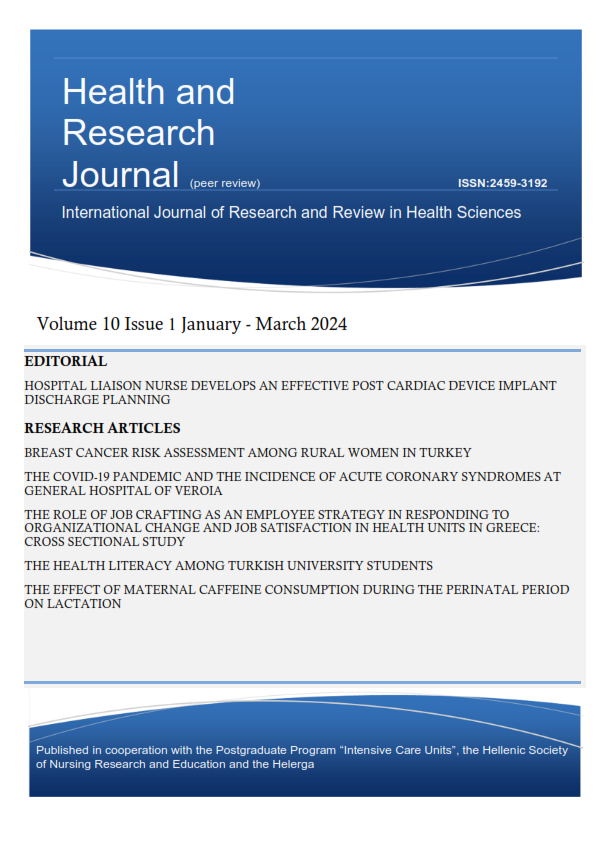The COVID-19 pandemic and the incidence of acute coronary syndromes at General Hospital of Veroia

Abstract
Background: Although deaths from Acute Coronary Syndromes (ACS) are the most prevalent globally, during the outbreak of the new SARS-CoV-2 coronavirus pandemic, there was a declining trend in hospital admissions for ACS patients. Inevitably a reduction of invasive procedures in cardiac catheterization laboratories was observed. Moreover, an increase in sudden out-of-hospital cardiac deaths was recorded. On the other hand, patients that eventually treated in the hospital had a much worse outcome in terms of cardiac function. Inadequate treatment of acute myocardial infarction resulted in a further increase in mortality due to coronary artery disease.
The aim of our study was the comparison of admissions of the patients with ACS before and during the COVID-19 pandemic.
Methods: A retrospective single center study was conducted. We recorded all admissions with ACS underwent invasive interventions during the period of lockdown due to COVID-19 pandemic, in Greece, from 16 March 2020 to 1 May 2020 (study period A), as well as in the period of gradual withdraw of restrictions from 2 May 2020 to 1 June 2020 (study period B),. The data were compared with those of the periods of 2019 (control period A and B).
Results: One hundred thirty eight patients were the group of study period and 158 were the group of the control period. The reduction rate was 12.7% in study period. The largest decrease in admissions concerned with elderly patients over 75 years old, as well as females (by 52% - 53% respectively). The severity of the restrictions but also the fear of the spread of the coronavirus may be relevant to the insufficient seek of help for these groups of patients.
Conclusion: Our study showed that during the pandemic period, the invasive interventions were fewer than those of 2019. However, the expected reduction of catheterizations during this two and a half months period was mitigated by the increase of inter-hospital transfers of patients with ACS from neighboring hospitals, without a catheterization laboratory.
Article Details
- How to Cite
-
Sdogkos, E., Roditis, P., Papadopoulos, A., Spahiu, A., Aidinis, A., Pliatsika, M., & Vogiatzis, I. (2024). The COVID-19 pandemic and the incidence of acute coronary syndromes at General Hospital of Veroia. Health & Research Journal, 10(1), 14–26. https://doi.org/10.12681/healthresj.34555
- Section
- Original Articles
Copyright notice:
Authors retain copyright of their work and grant the Health and Research Journal the right of first publication.
License:
Articles are published under the Creative Commons Attribution 4.0 International License (CC BY 4.0). This license permits use, sharing, adaptation, distribution, and reproduction in any medium or format, including for commercial purposes, provided that appropriate credit is given to the author(s) and the original publication in this journal, a link to the license is provided, and any changes are indicated.
Attribution requirement:
Any reuse must include the article citation and DOI (where available), and indicate if changes were made.


